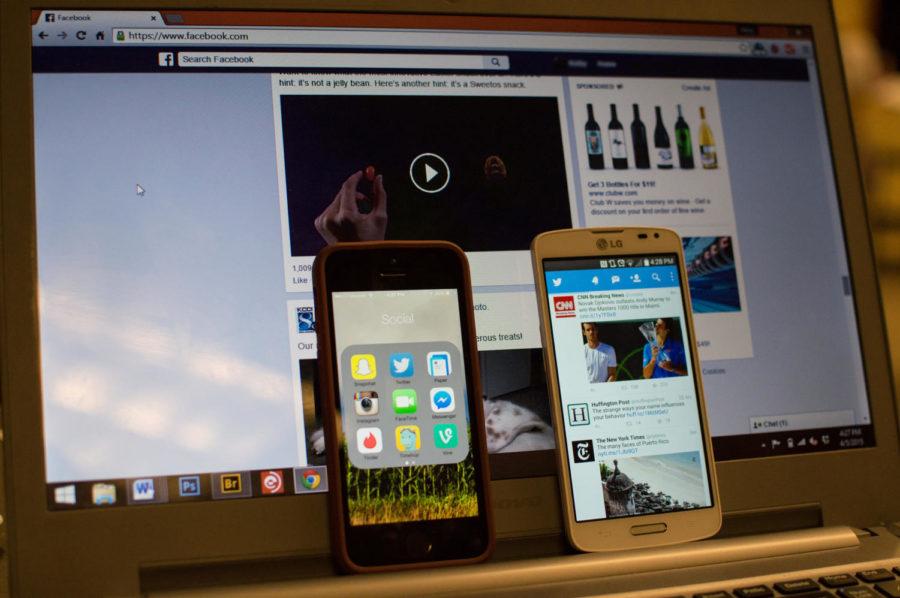- App Content
- App Content / News
- News / Politics And Administration
- News / Politics And Administration / Campus
Social media draws mixed feelings from Iowa State community
Technology and social media have an unruly power to dominate our lives. Columnist Abalu believes reconnecting with the real world is a worthwhile endeavor.
January 23, 2017
For some members of the Iowa State community, the positives and negatives of social media aren’t completely clear. For researchers, it seems to be a different story.
Most people of college age partake in the use of social media, and if they don’t, they know people who do.
Corinne Hastings, Iowa State alumna in political science; Darcy Besch, graduate student in sociology and teaching assistant in women and gender studies; and Jan Boyles, assistant professor in the Greenlee School of Journalism and Communication, all gave input on how social media affects students’ daily lives both socially and politically.
Researchers at the Stanford Graduate School of Education believe that students may not be able to verify the accuracy of information they find online.
Though this is true, it doesn’t mean that there’s anything wrong with college students. Both Besch and Boyles concluded that social media is not just a form of communication for college students and suggested that they’re probably not worse off than anyone else.
Besch expressed hope that college students and graduates would be more likely to identify false information.
“Most people are busy, it’s not just college students … at least one of the goals of a well-rounded education is critical media literacy,” Besch said.
Journalist’s Resource’s report on a research article summarizes that “College students who saw the political candidates’ Facebook pages were much more likely to base their opinions on Facebook community-based cues.”
Politically, Hastings believes social media is hurting younger people.
“We believe partaking in social media is interaction when in reality it’s not,” Hasting said. “You’re interacting with a computer — with a website — it makes us feel like we’re being politically active when we really aren’t. We’re not getting out and doing anything. We’re not talking to people face to face.”
There seems to be no clarity on whether social media is good or bad overall. AJ Agrwal argues on Forbes that “It’s Not All Bad”, and Robert Blair Osborn on The Sacramento Bee offers an argument on “Why social media is bad for us.” For Hastings, Besch and Boyles, the answer is unclear.
“If we look throughout the history of communication platforms, there have constantly been adjustments to emerging technologies,” Boyles said. “Social networks are such an extremely new form of communication.”
Boyles said understanding the influence that these new technologies have will come with time and that once the technology has been around for a little bit longer, people will be able to determine whether it has positive or negative effects on society.
“Every generation, including millennials, are currently grappling with how to best integrate social technologies into our everyday lives,” Boyles said. “Taken together, the study of social networks is such an engaging arena for research, inquiry and discovery.”
As for fixing the possible negative side effects of social media, the answer will likely be up to the users.







